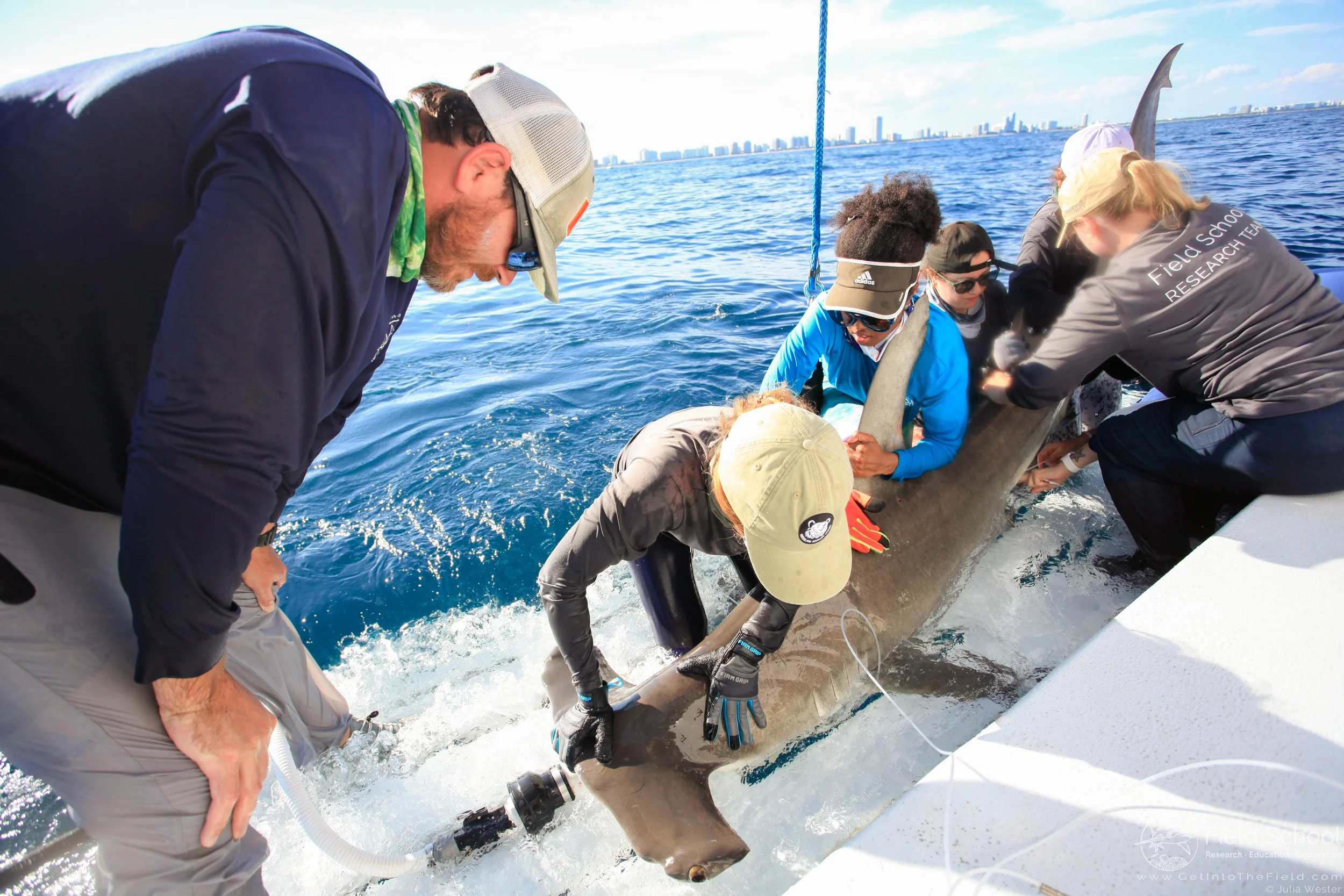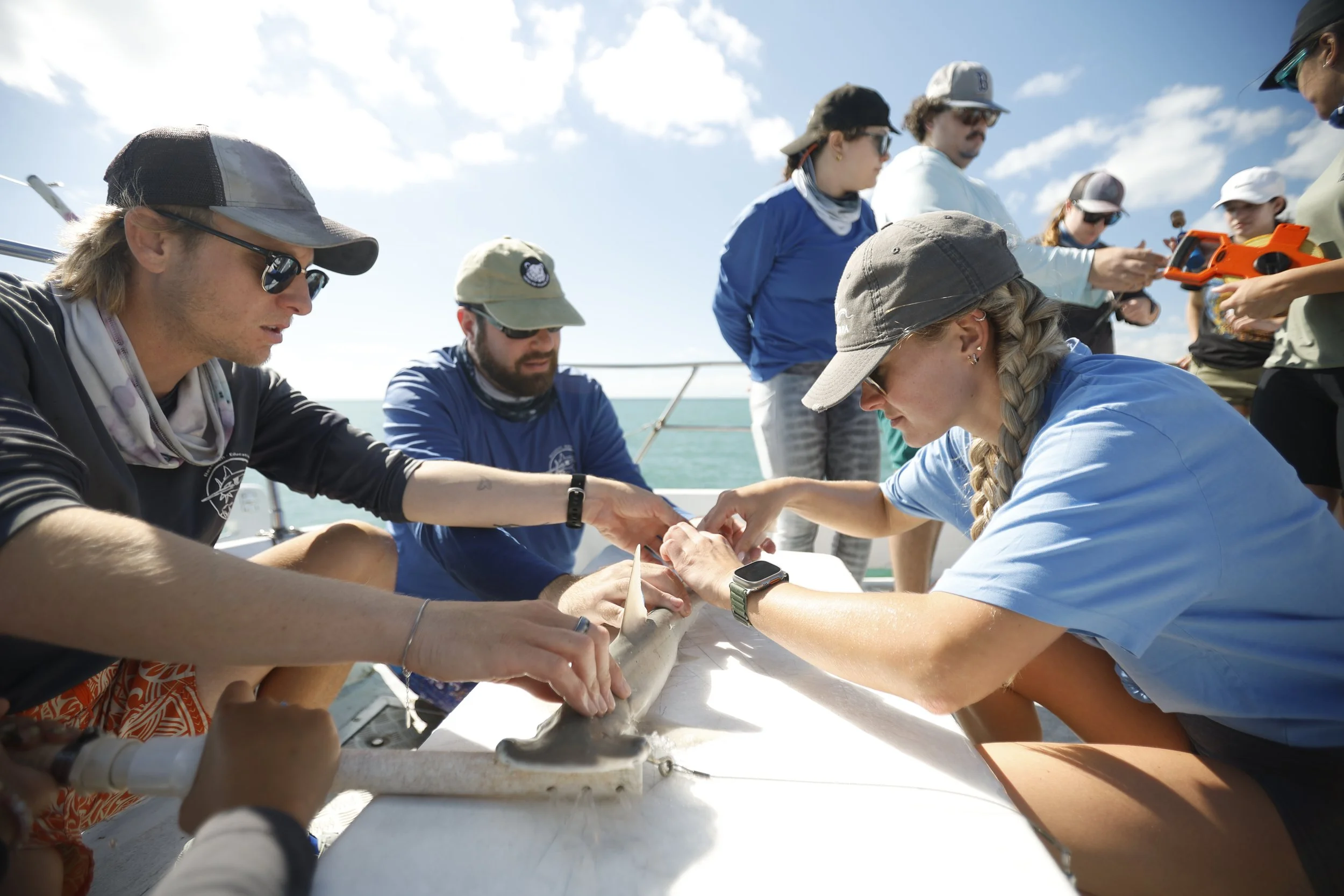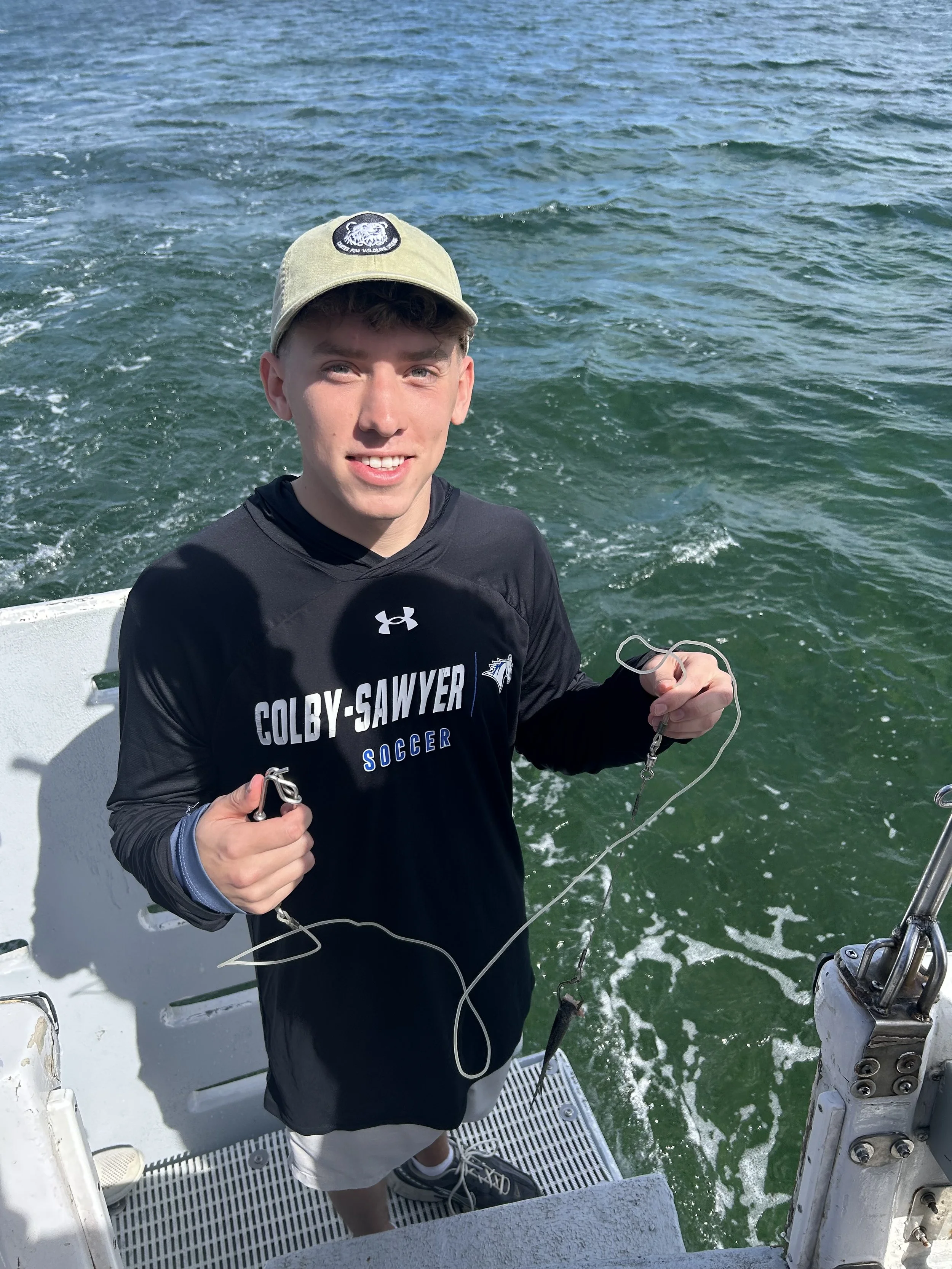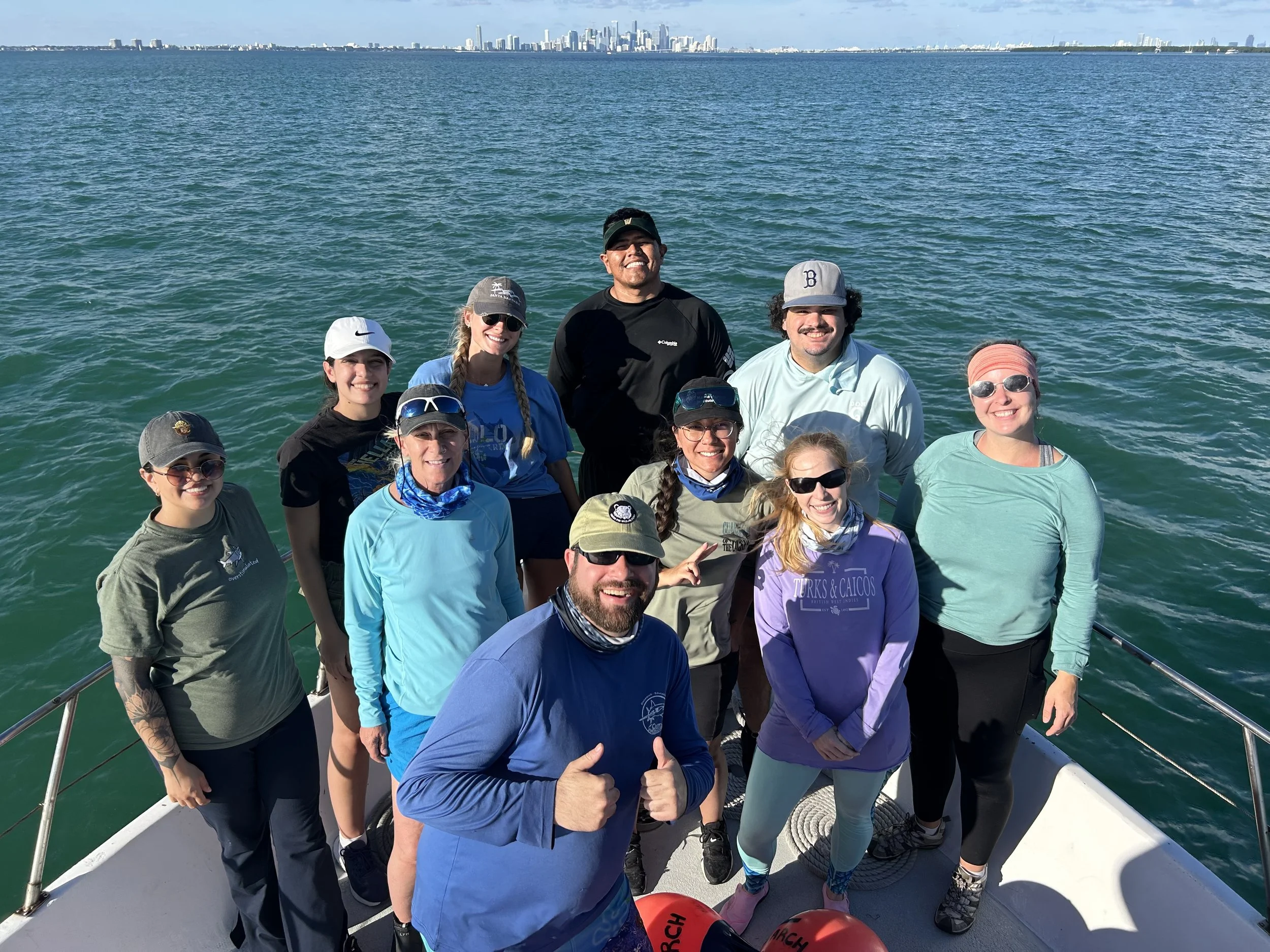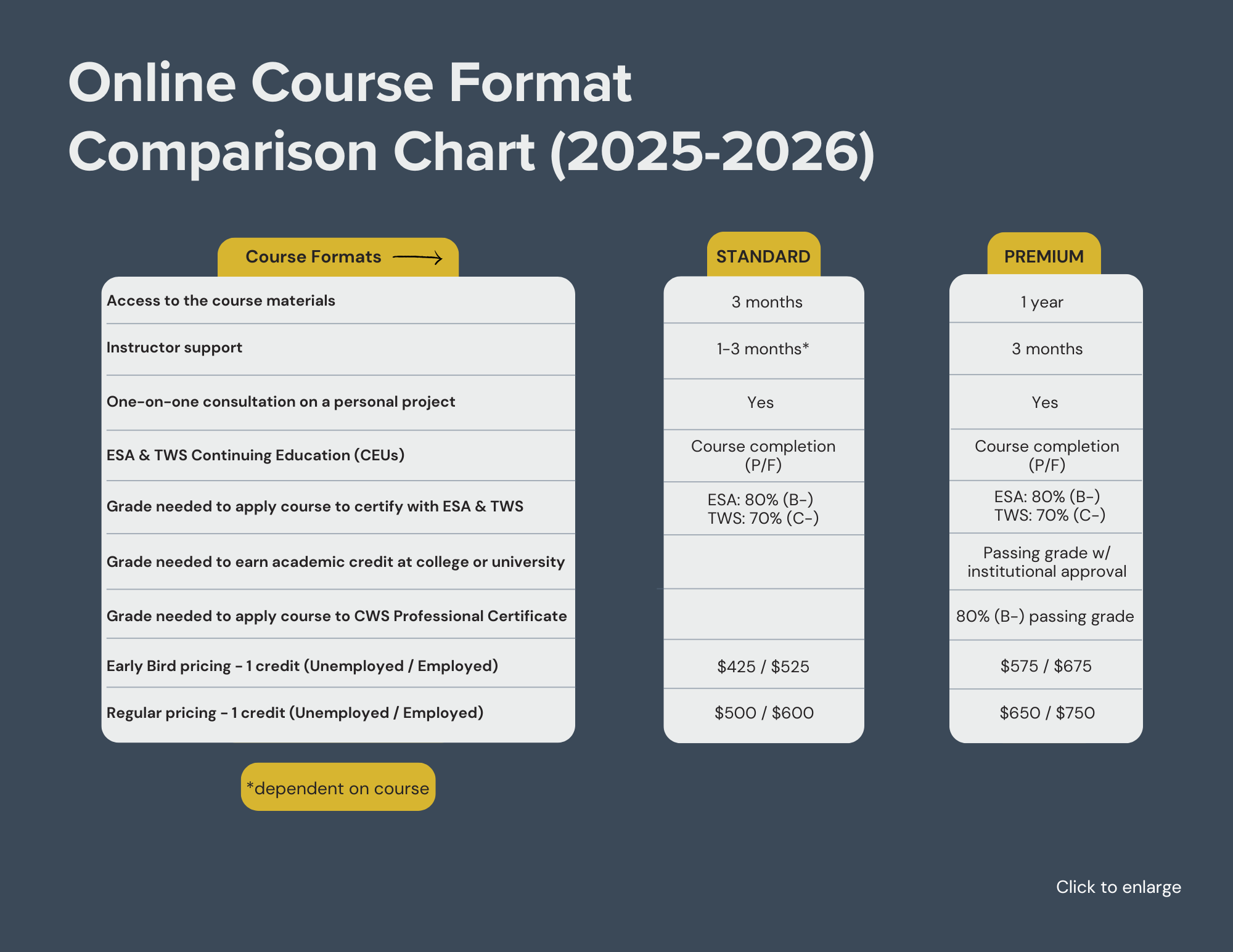***Spring 2026 field course dates are now available! See DATES & PRICING below for details.***
-
Sharks are an ancient, biodiverse, ecologically important, and highly threatened group of animals. This class will provide a broad overview of their ecology, biology, and behavior, along with the scientific tools and methods used to study these aspects of their lives. Students will have a broad understanding of key issues in the field and the scientific methods needed to address them, as well as scientific problem solving and critical thinking skills. This online course is equivalent to 1 academic credit.
An optional 3-day field experience in which students join instructor Dr. David Shiffman for hands-on shark research in South Florida is offered, with a maximum of ten students, at additional cost. Participants will live aboard the research vessel Garvin in Miami, Florida, where they will practice shark field research skills. They'll help catch, measure, tag, and sample sharks, learning a variety of field research skills. Completing both the field experience and online course is equivalent to 2 credits total.
-
Online Course:
Learn at your own pace with instructor support (see Online Course Format Chart below for details).
Winter: February 9 – May 3, 2026 (Early bird ends January 11th)
From $425 depending on format. Early bird saves $75 on the online course
Field Course (Optional, additional fee applies):
March 3-5; Miami, Florida
$2,125 student/unemployed, $2,325 employed. Costs include 3 nights of accommodation on the research vessel. Participants are responsible for their own travel to/from Miami.
Pay $250 deposit now; remaining tuition due 60 days before the field course starts.
-
No specific prerequisites. However, it is strongly recommended to have a basic background in biology or ecology or marine science. A past introductory course is sufficient.
-
Module 1: Evolution, biology and taxonomy of sharks
Learning Outcome: List the different major groups of sharks, define sharks and contrast them with other groups of fish and other groups of marine life, and explain the evolutionary history of sharks. Identify common species of sharks, including those that will most likely be seen on the optional field trip.
Module 2: Reproduction and life history of sharks
Learning Outcome: Explain and contrast the different reproduction and life history strategies used by sharks and discuss how these reproductive strategies impact shark conservation and sustainable fisheries management.
Module 3: Ecology, migration, and behavior of sharks
Learning Outcome: Define and compare different ecological roles played by sharks and examine what this means for arguments to conserve them, interpret management plans in the context of shark migratory behavior, and define key behaviors.
COURSE OPTIONS & INFORMATION (Review chart above, then click below)
-
FORMAT:
3 months of access to course materials as you work at your own pace
Get instructor support for the 3-month term via email, discussion threads, group meetings, and one-on-one appointments
After working through the course materials, set up an optional meeting with the instructor to discuss your own personal project from work or school
CONTINUING EDUCATION:
16 CEUs with The Wildlife Society
CERTIFICATIONS:
Earn 1 credit toward certification as an Associate/Certified Wildlife Biologist® (at any level) with The Wildlife Society
-
FORMAT:
12 months of access to course materials as you work at your own pace
Get instructor support for the 3-month term via email, discussion threads, group meetings, and one-on-one appointments
After working through the course materials, set up an optional meeting with the instructor to discuss your own personal project from work or school
CONTINUING EDUCATION:
16 CEUs with The Wildlife Society
Go to our Continuing Education Page for more details
CERTIFICATIONS:
Earn 1 credit toward certification as an Associate/Certified Wildlife Biologist® (at any level) with The Wildlife Society
ACADEMIC CREDIT:
Earn 1 academic credit (go to our Academic Credit Page for details)
Earn an additional 1-2 academic credits with an Applied Project
INSTRUCTOR
SCHOLARSHIPS
Full scholarships for the online course tuition are available to participants from countries designated as “lower income” and “lower middle income” in the World Bank List of Economies. Please see our CWS World Scholars Program page for details. We do not have scholarships available for the field component at this time.
CANCELLATION POLICY
Online Course: Cancellations 30 days or more before the start date are not subject to cancellation fees. Cancellations <30 days before the start date are subject to a 50% cancellation fee. No refunds once the course begins.
Field Course: The remaining tuition balance is due 60 days prior to the field course start date. For cancellations <60 days before the start date, the deposit is non-refundable and the remaining balance paid on tuition is subject to a 50% cancellation fee. No refunds once the course begins.


